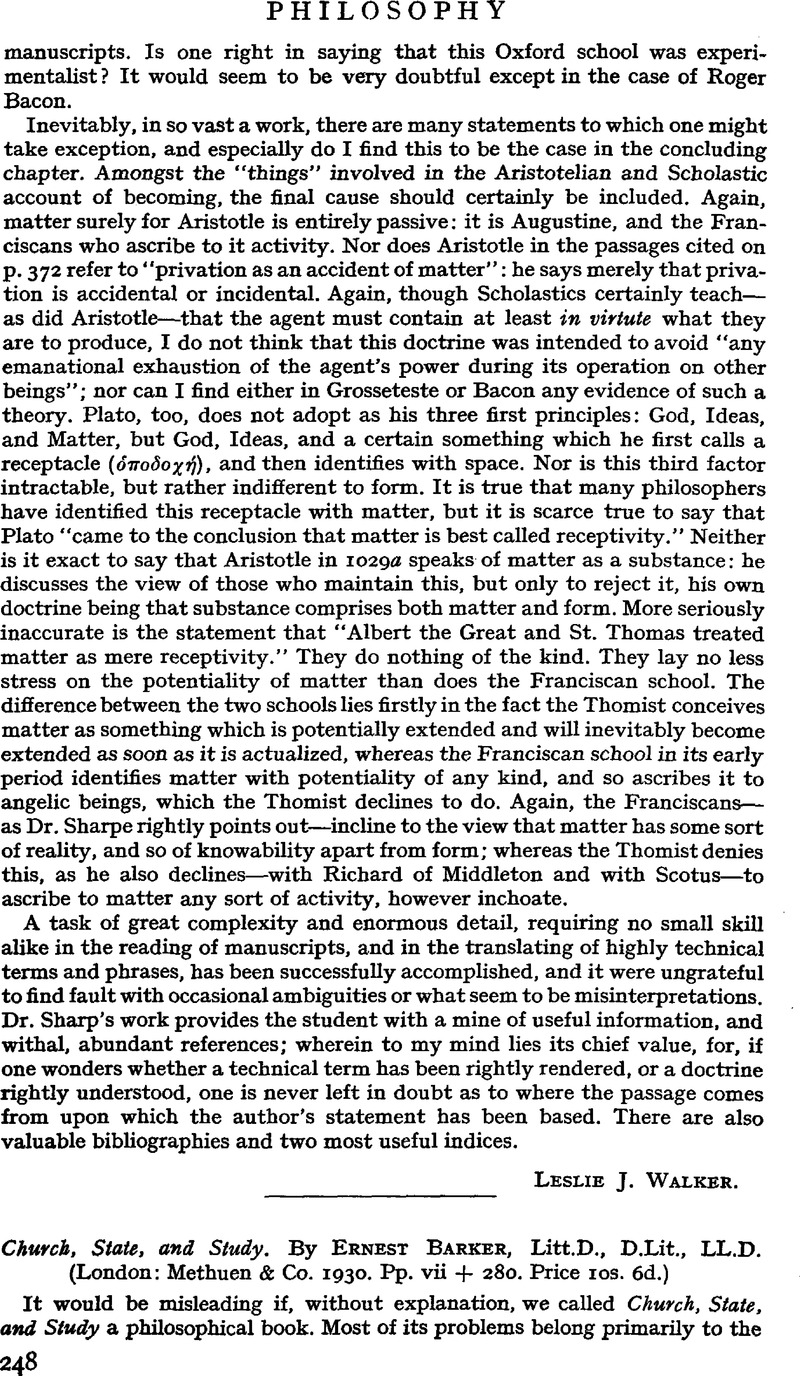No CrossRef data available.
Published online by Cambridge University Press: 25 February 2009

page 249 note 1 The Quest for Certainty, p. 20.
page 249 note 2 517 C.
page 249 note 3 Church, State, and Study, pp. 200–201.
page 249 note 4 P.194.
page 249 note 5 Pp. 14–15.
page 250 note 1 P. 32.
page 250 note 2 P. 163.
page 250 note 3 P. 47.
page 250 note 4 P. 48.
page 250 note 5 P. 223.
page 251 note 1 If the age of Pericles is the “analogue” of our own, a similar comparison may be drawn between the age of Cicero and the Eighteenth Century, or again between the Age of Councils and the Reformation. Compared with Plato, the controversial manners of Athanasius and of Luther are barbaric, and about equally barbaric. Civilization is thus remarkably similar just before it enters the darkness of the Middle Ages to what it becomes just as it is emerging from it. If we represented its course between Pericles' time and our own by a descending and reascending curve, this metaphor would express a truth which is not expressed in Hegel's comparison of the progress of civilization with the ages of man (Greek civilization the "youth," Roman the "manhood," Germanic the rich maturity" of our race). Yet the metaphor of the curve must not be so used as to allow us to forget that we have, as Christians, something in common, not only with Dante and Aquinas, but also with the earliest Franciscans and the author of the Golden Legend, which even Plato and Pericles do not share with us.
page 251 note 2 P. 113.
page 251 note 3 P. 115.
page 251 note 4 P. 145.
page 251 note 5 Pp. 114–115.
page 251 note 6 Summna Theologica, I. 50. 3.
page 252 note 1 Under the beading “History of St. Pelagius.”
page 252 note 2 Paradiso, VI. 34–9
page 252 note 3 P. 227.